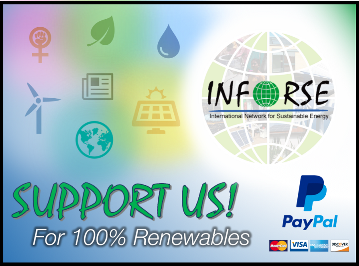|
|
|
|
|
|
|
|
|
|
|
|
|
|
|
|
|
|
|
|
|
| Follow Us: |
| Growth Rate / Potential | |
|
In the past decade, Thailand had enjoyed impressive economic growth, on average 8 % per year. Therefore, peak generation requirement for power sector rapidly increased from 4,733.9 MW in 1987 to 14,506.3 MW in 1997. The annual average growth rate for this decade was more than 10%. Meeting this demand caused many problems to Thai society. From an economic point of view, it is clear that Thailand has to rely increasingly on foreign and non-renewable resources, which might increase the chances for the Thai economy to face an uncertain and uncontrollable future. From environmental and social points of view, the greenhouse-gas emissions have increased, and the developing of large hydropower plants has brought tragedy to natural forests and to local communities. These problems have forced Thai society to pay more attention to the utilization of domestic renewable energy like biomass as the means of making the energy sector more sustainable. Important biomass resources include rice straw and sugar cane, which are currently left in the field and, in many cases, burned in open air. |
|
| Biomass Equal to 50% of the Oil Consumption | |
| An estimated technical potential of 10,000 ktoe of rice straw and 7,000 ktoe of sugar cane is available in Thailand. These numbers exclude what is left in the field as natural fertilizer. Combined with other biomass resources such as logging trash, rice husks, corncobs, and coconut shells, Thailand has an estimated technical biomass potential of more than 20,000 ktoe, which is equal to more than half of the country’s current oil consumption. Moreover, an analysis of the structural potential of efficient power generation in agro-industry shows that an annual production of electricity will be about 11,200 GWh and the power capacity will be almost 3,000 MW. | |

| |
| Published in Sustainable Energy News |
|
|
Go back to main page of ISSUE #29 (684KB) 16 pages (2000-05-01) |
|
| Contact | |
| |
INFORSE Secretariat Klosterport 4F, 1. floor DK-8000 Aarhus C Denmark Phone: +45 86 22 70 00 Twitter: INFORSE_org Facebook: INFORSE Web: inforse.org E-mail: ove@inforse.org |
